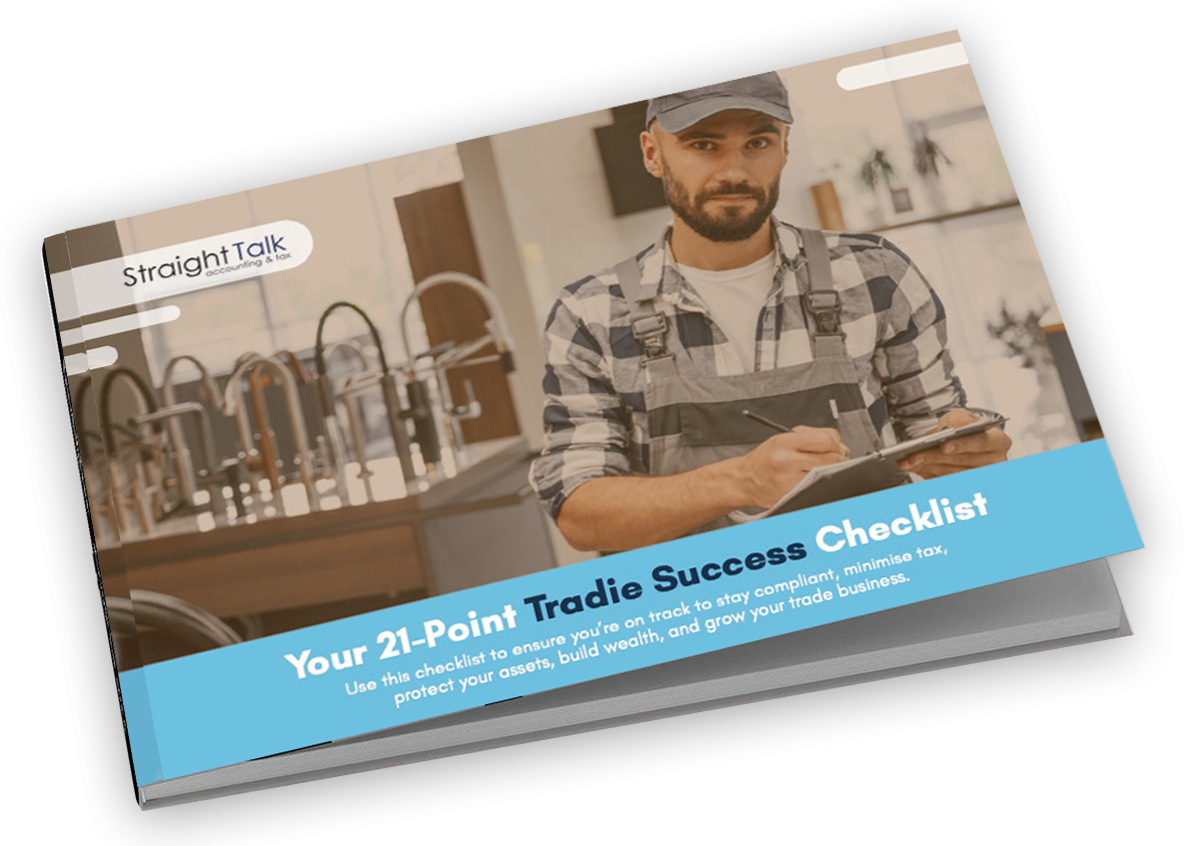Running a trade business can be a great way to earn an income—but if you want to build real financial security for the future, your business income is just the beginning.
Many tradies focus all their energy on their business, without thinking about how to turn their hard work into long-term wealth.
Here’s the truth: you won’t build wealth just by working harder or invoicing more. To build wealth, you need a plan to take money out of your business and put it to work elsewhere.
Here’s how to do it.
- Start by Paying Yourself First
If all your business profits are going back into tools, vehicles, staff or fixing last month’s problems—you’ll never build wealth.
The first step is to regularly pull money out of the business and into your personal wealth plan. This doesn’t mean draining the business dry, but it does mean treating yourself like your most important employee.
💡 Set up a regular transfer (weekly or monthly) to a separate savings or investment account. Automate it.
- Build a Cash Reserve
Cash is the buffer that helps you stay in control—especially in seasonal or up-and-down industries like construction.
Before investing in anything long-term, aim to build up a cash reserve outside your business. This gives you flexibility, peace of mind, and stops you dipping into credit cards when things are tight.
🎯 Aim for at least 3–6 months of personal expenses saved.
- Pay Down Bad Debt
Before investing, pay off any high-interest or non-productive debt (like personal loans, car loans, or credit cards). These often cost you more in interest than you’ll earn from most investments.
If you’ve got business debt, talk to your accountant or adviser about whether it’s helping you grow or just weighing you down.

- Invest in Income-Producing Assets
Once you’ve got a cash buffer and your debt under control, it’s time to put your money to work.
Here are a few popular options tradies use to build wealth:
- Property – A long-term favourite for many tradies, especially if you understand building or renovation.
- Shares or ETFs – A good option for those looking to diversify, especially through super or managed funds.
- Superannuation – Often overlooked, your super is one of the most tax-effective ways to build wealth.
- SMSF (Self-Managed Super Fund) – Allows you to invest in property or other assets inside your super (with the right advice).
- Business investments – Just make sure they’re producing a return, not just adding to your workload.
🧠 Tip: The best investment is the one that aligns with your goals, time frame and appetite for risk. Not someone else’s.
- Use the Right Structure
Wealth building isn’t just about what you earn—it’s also about what you keep.
Using the right legal and tax structures (like family trusts, companies, or SMSFs) can help you:
- Reduce the tax you pay on investment income
- Protect your assets from legal or business risks
- Set your family up for future generations
⚠ Always get advice before moving money or setting up investment structures. One wrong move can undo years of good planning.
- Have a Clear Plan (And Review It Regularly)
The key to building wealth is consistency.
You don’t need to invest $100,000 tomorrow. But you do need a plan that helps you make progress every month or every quarter.
That plan should include:
- How much you’re saving or investing
- Where that money is going
- What you’re working toward long-term
- Who’s helping you stay on track
💬 Tip: Many tradies find that having a quarterly check-in with their accountant or adviser makes all the difference.
Your Business Is the Vehicle—Wealth Is the Destination
Your trade business is a great income source. But wealth happens when you use that income to create financial freedom outside the day-to-day grind.
Start small. Get consistent. And get the right advice.
At Straight Talk Accountants, we help trade business owners build plans to grow their business, reduce tax, and build long-term wealth—both inside and outside the business.
👉 Download our free 21-Step Tradie Success Checklist or book a free intro session to get started.
Please Note: Many of the comments in this publication are general in nature and anyone intending to apply the information to practical circumstances should seek professional advice to independently verify their interpretation and the information’s applicability to their particular circumstances.




